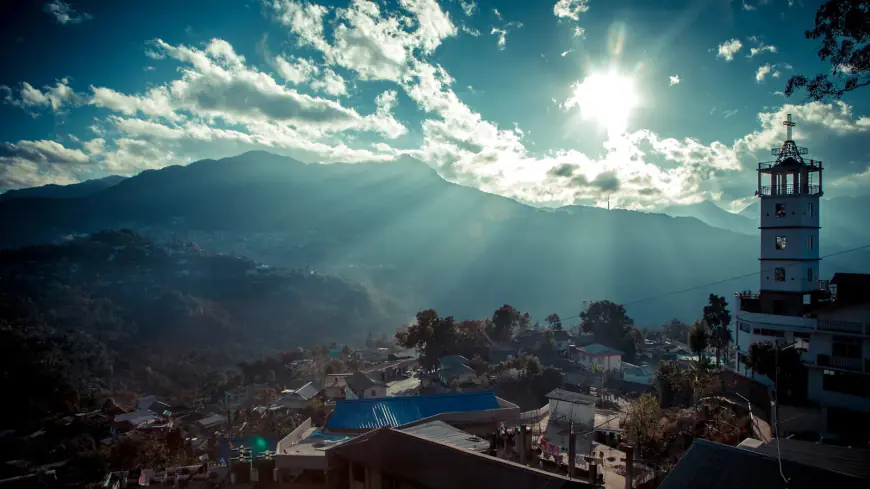Nagaland State Day: A day of historical and cultural pride
Nagaland, also known as the "Jewel of Northeast India", is famous for its unique cultural diversity, natural beauty and rich traditions. Nagaland State Day is celebrated on 1 December every year , which marks the formation of the state and recognition of its official place in the Indian Union. On this day in 1963, Nagaland became the 16th state of India.
History and background
The journey of becoming a state of Nagaland is associated with a long struggle and historical events. Naga tribes have lived in this region since ancient times. Nagaland was part of Assam during the British rule, but the Naga communities have always maintained their separate identity.
Naga National Movement
- In 1918, the Naga Club was formed, which represented the interests of the Naga community.
- After India's independence in 1947, Naga leaders initiated dialogue with the Indian government to maintain their cultural and political independence.
- Many movements and struggles gained momentum for the recognition of the separate identity of the Naga people.
- In 1957, the Government of India granted the status of an autonomous region to Nagaland as the "Naga Hills-Tuensang Region".
- Finally on 1 December 1963, Nagaland got full statehood.
Geographical and cultural identity of Nagaland
Nagaland is a beautiful and hilly state in Northeast India, bordered by Assam, Arunachal Pradesh, Myanmar and Manipur. Its geographical and cultural features make it different from other states.
Key features
- Geographical Location:
Nagaland has 11 administrative districts. Its capital is Kohima, while Dimapur is the largest city and commercial center of the state.
- Tribal Diversity:
Nagaland has 16 major tribes, such as Angami, Ao, Seema, Chaksang, and Konyak. Each tribe has its own language, traditions and customs.
- Cultural Heritage:
Nagaland is known for its rich cultural heritage. Festivals like traditional costumes, handicrafts, and folk dances are an integral part of Naga life.
- Hornbill Festival:
The Hornbill Festival is held every year around the statehood day of Nagaland. It is called the "Festival of Festivals" and is a grand display of Naga culture, food, sports and music.
Significance of State Day
Memory of history
Statehood Day symbolizes the struggle and spirit of independence of Nagaland. The day pays tribute to those leaders and people who sacrificed to preserve the Naga culture and political identity.
A symbol of national unity
Nagaland State Day is important not only for this region, but for the whole of India. It reinforces the principle of unity in India's diversity.
A celebration of cultural identity
On this day there is a grand display of the culture, art, and traditions of Nagaland. Local tribes express their identity through their traditional dance, music and costumes.
Program held on State Day
Various programs are organized on Nagaland State Day:
- Official function:
- Official program led by Governor and Chief Minister in Kohima.
- Flag hoisting, parades and cultural performances.
- Hornbill Festival:
- From 1st December to 10th December this festival is celebrated at Kisama Heritage Village in Nagaland.
- Demonstration of traditional games, handicrafts, and food of the Naga communities.
- Program for Youth:
- Sports competitions, music concerts, and performances by local artists.
- Promotion of Tourism:
A large number of tourists visit during Nagaland State Day, which also boosts the economy of the state.
Challenges and Prospects of Nagaland
challenges:
- Internal Conflict: Nagaland has long been plagued by internal conflict and political instability.
- Economic Development: Economic development in the state is slow due to geographical difficulties and limited resources.
- Education and Health: Lack of education and health facilities is a major problem in Nagaland.
Possibilities:
- The cultural and natural beauty of Nagaland offers endless possibilities for tourism.
- The state's handicrafts and organic agricultural products are getting recognition in the national and international markets.
- Nagaland is reaching new heights with the efforts of young generation and women entrepreneurs.
- Nagaland Statehood Day is not just a historical date, but a reminder of how cultural and political identity can be preserved through struggle and determination. December 1 is not only a celebration of Nagaland's achievements, but also a symbol of India's diversity and prosperity.
Celebrating this day inspires us to understand and respect the culture, traditions and challenges of Nagaland. On the statehood day of Nagaland, we all should unite and contribute to the development and prosperity of this region.












































































































































































